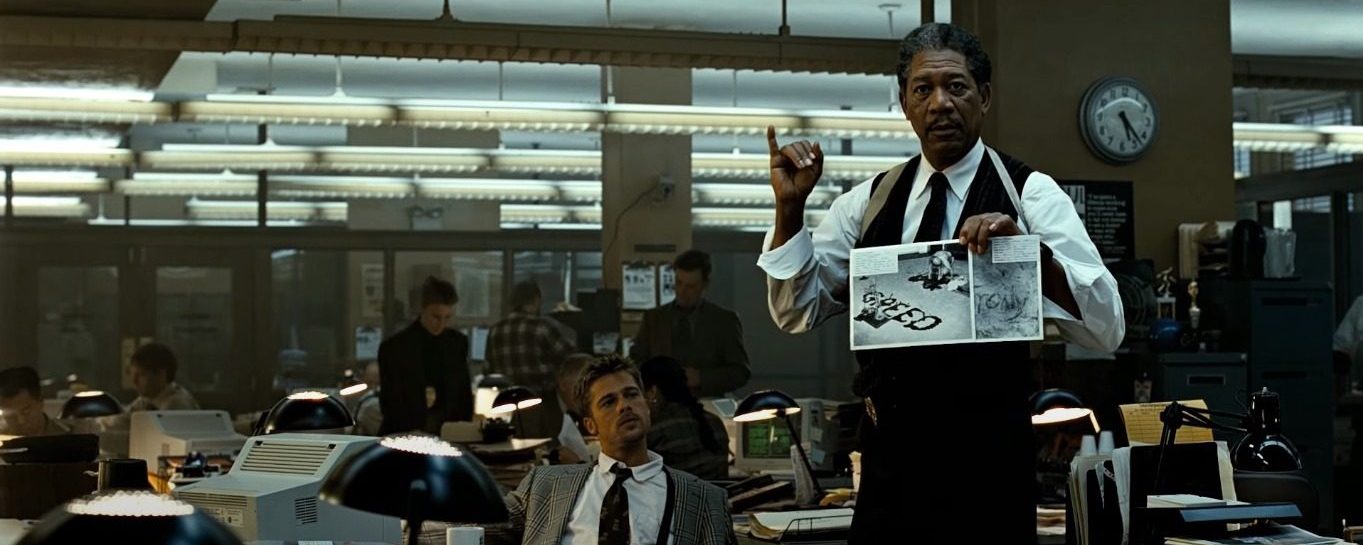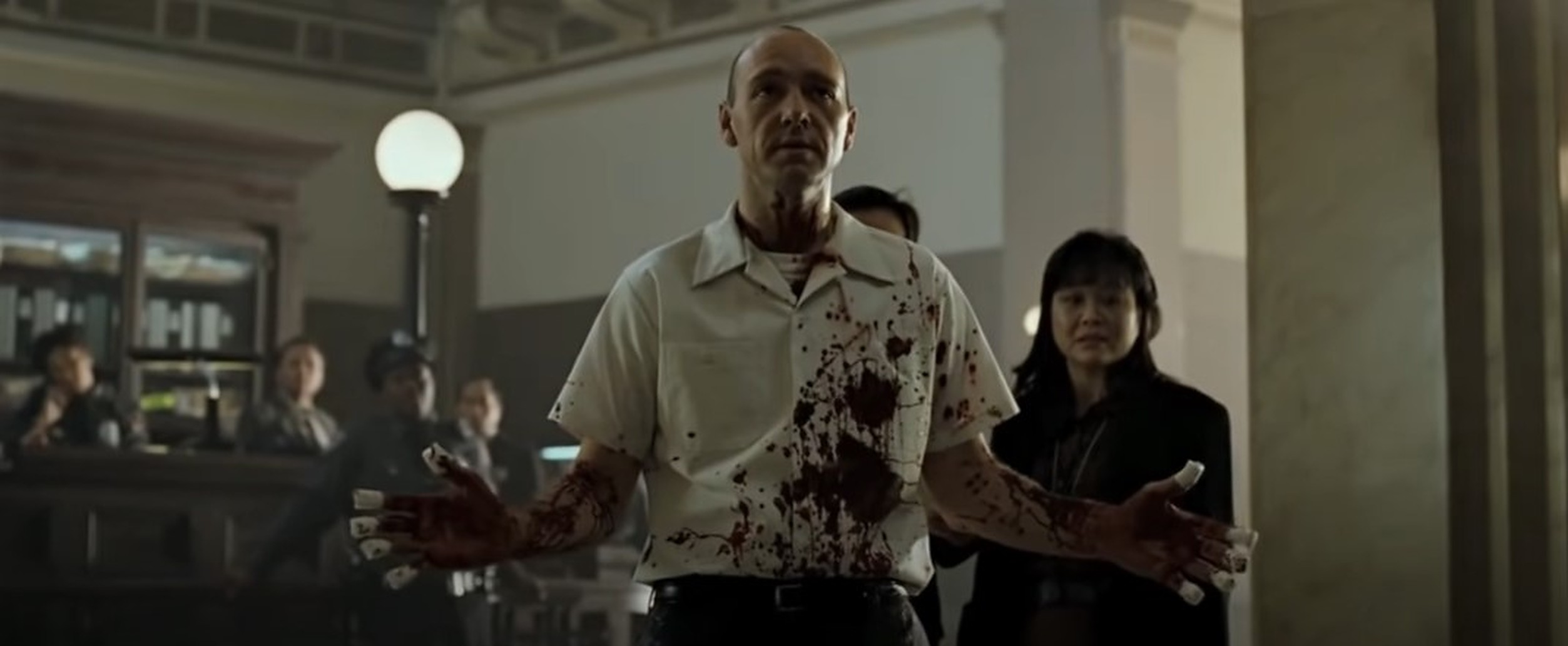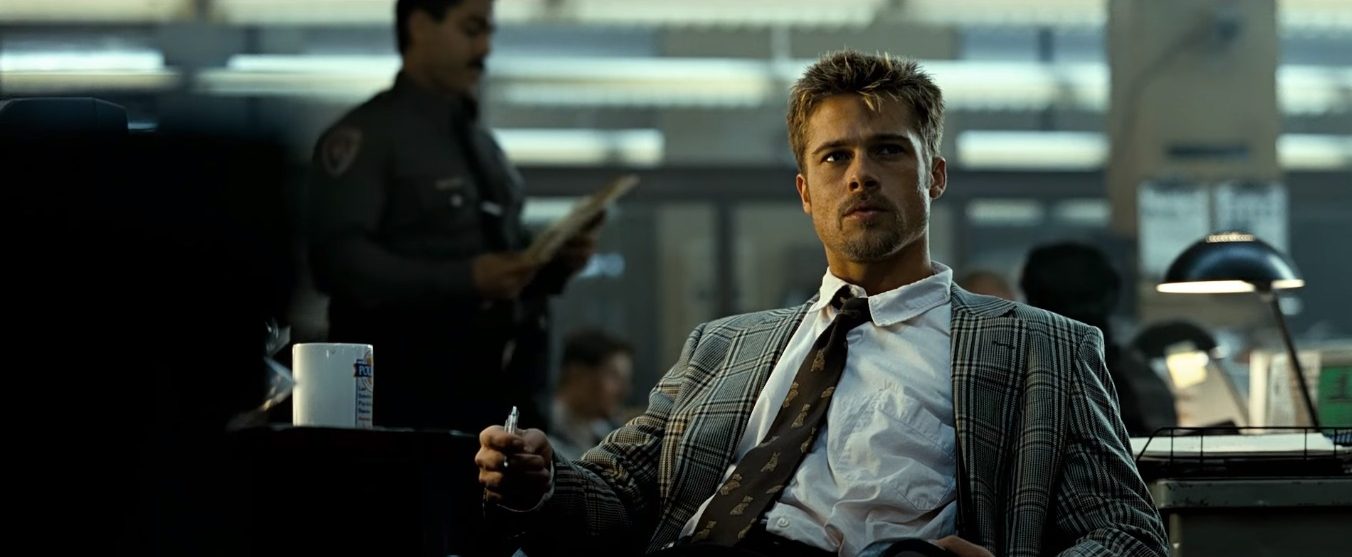David Fincher’s ‘Seven’ (stylized ‘Se7en’) is a 1995 psychological thriller movie that follows young detective David Mills (Brad Pitt), who teams up with the grizzled detective William Somerset (Morgan Freeman). Their target is a deranged serial killer who leaves grisly crime scenes themed with the seven deadly sins. Hence, the killer introduces a separate sin with each successive crime scene.
The film’s premise is already quite chilling, but its ending has gone down in the annals of cinematic history for its shocking nature. As remarkable and gruesome as the crimes depicted are, there is certain realism to the world shown in ‘Seven.’ Let’s take a look at whether the film draws from any real-life incidents or not.
Is Se7en a True Story?
No, ‘Seven’ is not based on a true story or a book. The unmistakable David Fincher directs the film from a script penned by Andrew Kevin Walker. While drafting the chilling narrative, the latter took inspiration from the crowded and grimy conditions of New York City, where he spent some time trying to make it as a writer. In a commentary about the film, Walker described how he could walk down the street in the city and see one of the seven sins being committed without even trying.

The film depicts a particularly visceral version of New York City, drawing attention to its seedy underbelly. It also makes the audience aware of just how easily a deranged killer can hide amongst the city’s thronging crowds, which is what happens in the movie. In an interview published in a film magazine, the writer said that though he disliked his time in the Big Apple, if not for it, he wouldn’t have written ‘Seven.’
Despite the characters, most notably the psychotic villain John Doe (Kevin Spacey), being fictional, Walker etched out each person in startling detail. The screenplay even contained minute descriptions of Doe’s decrepit apartment, with each element backed up with reasoning by the writer. The drawer full of empty aspirin bottles was justified by the killer’s constant, unstoppable thoughts giving him headaches. Furthermore, committing crimes in a crowded city meant his windows would be painted black (as in the movie).
Doe’s backstory and motives remain largely opaque in the movie, further adding to the mysterious villain’s character. Keeping details vague about the psychotic killer makes it easier to imagine someone like him actually existing. In fact, a scene depicting Doe working alone in his apartment was removed from the movie, and the antagonist is only ever seen from the authorities’ point of view. Interestingly, the film’s shocking final scene almost didn’t make it into the movie.

In the film’s DVD commentary, Fincher revealed how his agent inadvertently gave him Walker’s first draft instead of the studio-approved later draft, which featured a different, more “convenient” ending. The director loved the original ending and signed on knowing there would be pushback against it. In the end, the director (and writer) won out, and the script’s original (now famous) ending was kept. Moreover, Brad Pitt went so far as to say in the DVD commentary that this was the closest to a perfect film he had worked in.
‘Seven’ gets its unnerving authenticity from a hyper-realistic urban backdrop and carefully etched out characters that genuinely feel like regular people put in extraordinary circumstances. The writer has put his experiences living in New York City into creating a vivid and grimy setting for his story. In fact, even the theme of the seven deadly sins seems to have been inspired by the Big Apple. Ultimately, the film is a gritty but fictional tale of a psychotic murderer who carries out unspeakable crimes and the detectives that try to understand and apprehend him.
Read More: Movies Like Seven


You must be logged in to post a comment.